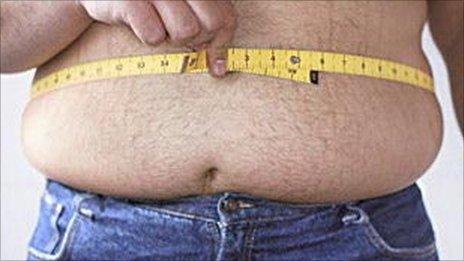Philadelphia to bring in 'soda tax' to fight obesity
- Published
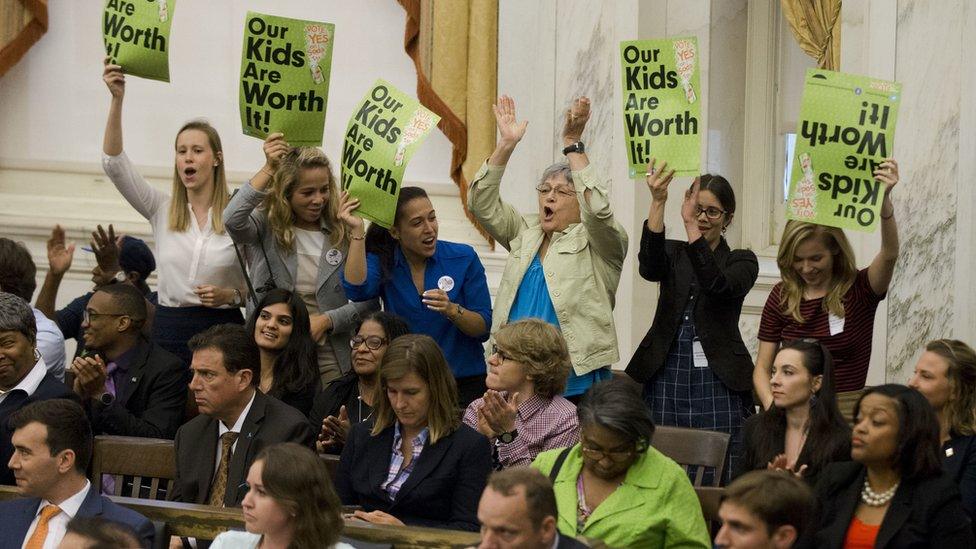
Supporters of the tax cheered in the council chamber when the bill was passed
Philadelphia has introduced a levy on carbonated sugary drinks, despite a multimillion-dollar campaign by the beverage industry to block it.
It will become the first major US city to implement a so-called "soda tax", which supporters say will improve the health of 1.5 million residents.
But opponents say it will hurt small businesses and poorer people.
The measure will come into force in January and is expected to raise $90m (£63m) next year.
The city's Democratic mayor, Jim Kenney, says the tax revenue will be spent on pre-nursery and community schools, and recreation centres.
He said: "Philadelphia made a historic investment in our neighbourhoods and in our education system today."
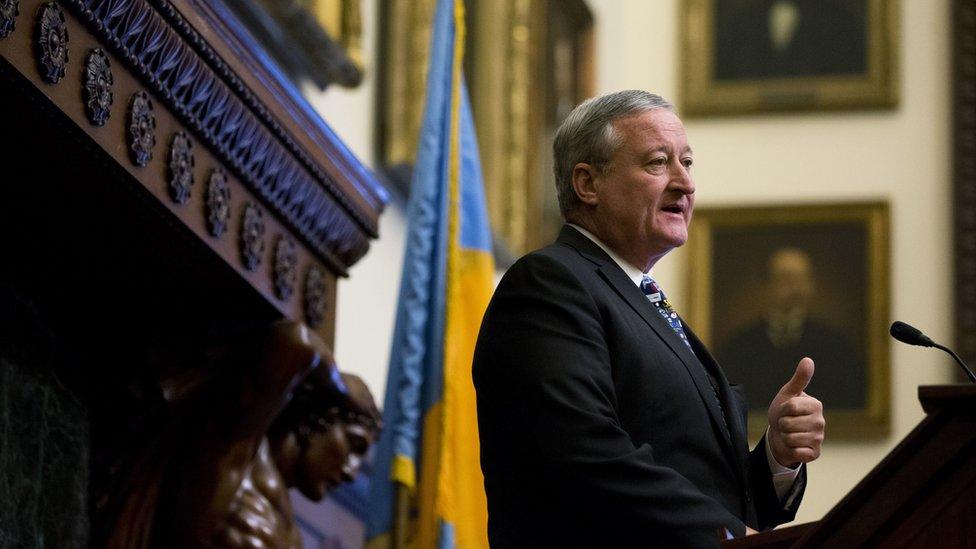
Philadelphia's mayor, Jim Kenney, told reporters the tax was a "historic investment"
The tax will be set at 1.5 cents per ounce (about 50 cents, or 35 pence per litre). Distributors will be required to pay it on all sugary or artificially sweetened drinks, and may choose whether or not to pass it on to consumers.
"Soda tax" proposals have failed in more than 30 states and the only other city in the US with a similar tax is Berkeley in California.
The beverage industry paid for advertising against the tax proposal, saying the tax would be costly to consumers.
Multimillionaire Harold Honickman, who made his fortune in the soft drink bottling industry, spent an estimated $1.7m (£1.2m) fighting the tax and said he would file a lawsuit against the case.
In Philadelphia, more than 68% of adults and 41% of children are overweight or obese.
The council had already approved the measure in a previous vote, and Thursday's 13-4 vote rubber-stamped the proposal.
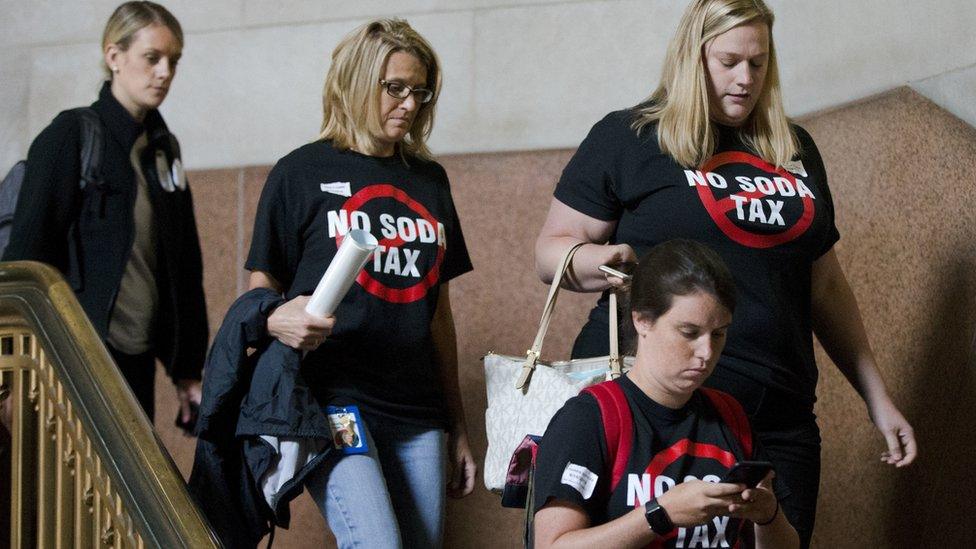
Opponents of the tax left the council meeting disappointed
- Published12 November 2015
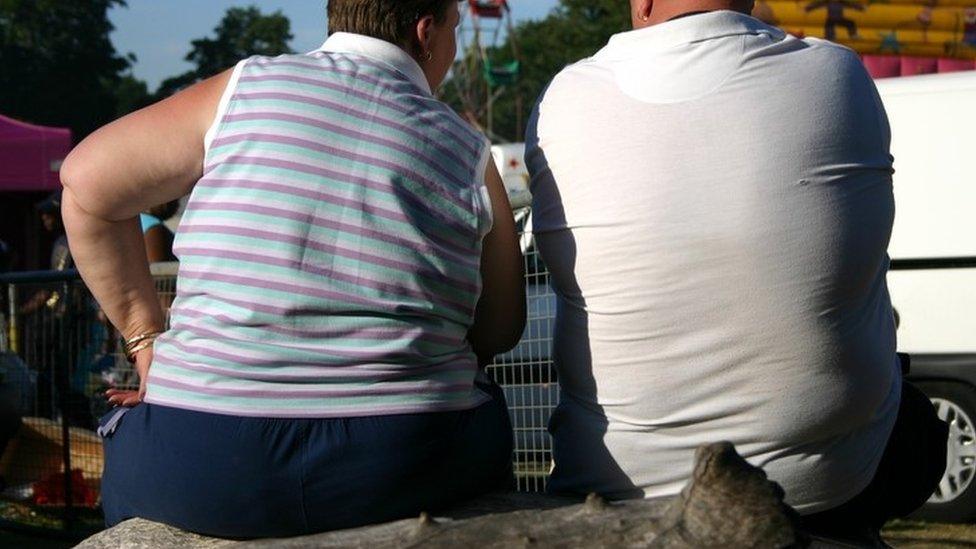
- Published3 April 2012
